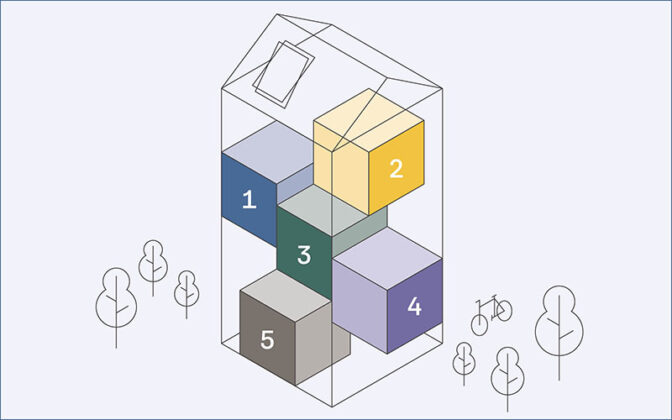Findings from the Healthy Buildings Barometer 2024

The Healthy Buildings Barometer 2024 emphasises the urgent need to put health, sustainability and resilience at the heart of construction and renovation projects. The study shows that only a holistic approach can future-proof the building sector - with clear recommendations for policymakers and industry.
The Healthy Buildings Framework presented in the Barometer provides a comprehensive definition of healthy buildings that covers five interrelated dimensions: improving mental and physical health, focussing on human needs, sustainable construction, resilience and flexibility, and empowering people through knowledge. These dimensions provide a clear guideline for the planning and implementation of construction and refurbishment projects.
The study emphasises that buildings must be considered not only from an energy perspective, but also from a health and social perspective in order to meet the needs of users and at the same time tackle climate challenges.
Switzerland as a pioneer in building refurbishment
The study places particular emphasis on Switzerland, which is playing a pioneering role in the building sector with a progressive refurbishment rate and innovative solutions. However, the barometer points out that the renovation rate of 0.2 per cent across Europe is still far too low to achieve the climate targets. In future, health aspects such as the indoor climate and adaptability to changing climatic conditions must be given greater consideration in order to both improve people’s quality of life and protect the environment.
Focus on health and well-being
According to the Healthy Buildings Barometer 2024, people spend up to 90 per cent of their time indoors, which makes the quality of indoor air and the availability of daylight key factors for health. In Switzerland, 7.3 per cent of people already rate their homes as too dark. Daylight and good indoor air quality are crucial for the well-being and performance of building users. The barometer makes clear recommendations here: The targeted use of natural light sources and effective ventilation systems should promote health and well-being.
Specialists as a crucial resource for the future
The shift towards healthy and sustainable buildings requires specialised professionals, but their numbers are stagnating. In order to transform the building stock and implement the urgently needed refurbishment measures, more specialists must be trained and demographic change must be taken into account. The fifth dimension of the framework, “Empowering people through knowledge”, emphasises the importance of education and training in this area.
The Healthy Buildings Barometer 2024 provides a comprehensive guide to making buildings healthier and future-proof. With clear recommendations for politicians, the construction industry and decision-makers, the study shows that only a holistic approach can meet the challenges of the building sector. Switzerland is playing a pioneering role here, but there is still much to be done across Europe to sustainably improve the building stock.